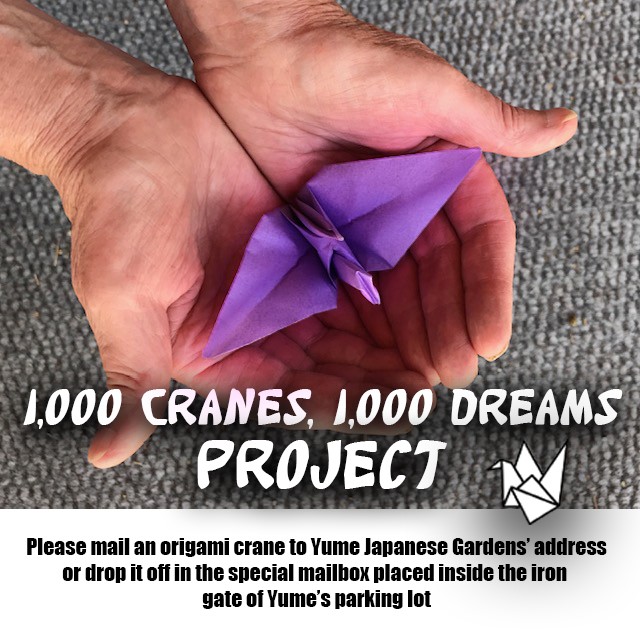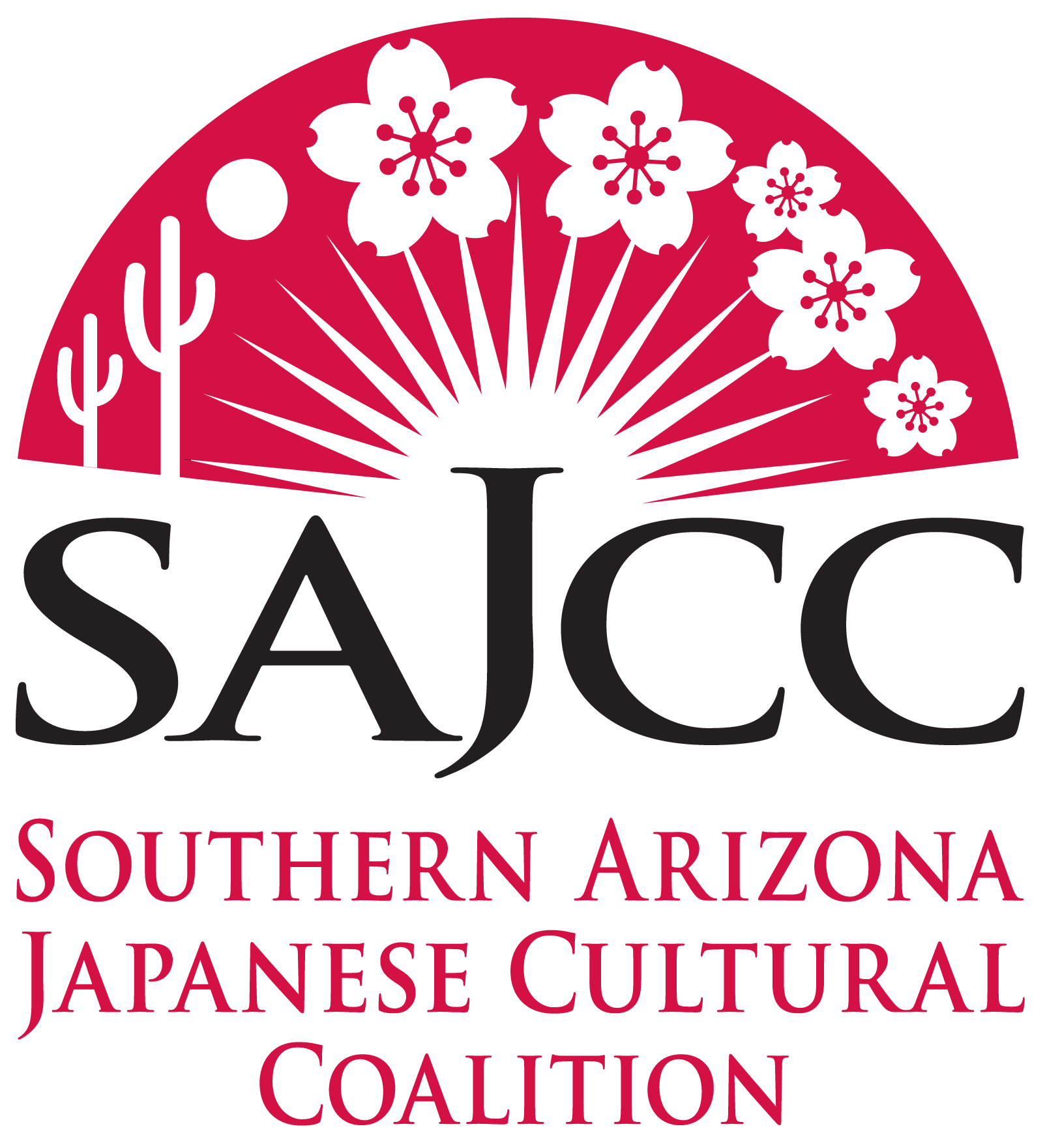The 1,000 Cranes, 1,000 Dreams Project
UPDATE 6/28/20: All 1000 Cranes folded and donated, thanks to Tucson community, during COVID Spring/Summer 2020.

“Yume has launched a signal community project to provide hope and healing to hearts frayed by the coronavirus. It’s called 1,000 Cranes, 1,000 Dreams.
The project takes its name from the meaning of Yume in English – “dream” – and from the graceful and elegant Japanese crane, said in fable to live for 1,000 years.
Fruit of its mythically long life, the Japanese crane enjoys hope in a happy future. Our mission is to instill a similar healing confidence in all who participate in 1,000 Cranes, 1,000 Dreams. Our means to achieve this lies in the Japanese tradition of Senbazuru, according to which those who devote time and effort to make origami cranes see their most heartfelt wishes granted.
We invite you to join 1,000 Cranes, 1,000 Dreams, to shrink the darkness of disaster and brighten the light of your well-being.
To take part, we ask that you and as many of your family members and friends as you may persuade each make at least one origami crane and contribute it to Yume. This is not an amusement to distract you from a perilous pandemic. Rather, it’s a profound act of love and generosity toward others, and of authentic care for yourself. You’ll find that participation in a meaningful collective creative achievement opens an avenue to personal restoration for you.
Link here for video instructions on how to make your crane: https://www.youtube.com/watch?v=yTY-nGYYq_c
Birds made of any paper without images can be mailed to the Gardens at 2130 N. Alvernon Way, Tucson, AZ, 85712, or dropped in a box inside the parking lot gate.
When Yume reopens – we’re temporarily closed in the interest of public health – your origami birds will be displayed with hundreds more all across the Gardens. You’ll see cranes fluttering in our wisteria and pines, perching on boulders, flocking on bamboo gates and fences, and flying from stone lanterns to stone water basins.
More about Senbazuru and the Japanese crane
Strings of origami cranes are often hung in Japanese temples and shrines. Offered to friends, a collection of cranes implies a wish for their prosperity and good health, and given to newlyweds, it expresses desire for their lasting happiness. Because the Japanese crane mates for life and guards its nest with especial vigilance, it symbolizes conjugal devotion and fidelity, as well as protectiveness of family. This has won it wide use in Japan as a decorative motif on wedding kimonos and nuptial sweets.
Feathered mainly in snow-white plumage and with a red crown, Japan’s native crane likewise incarnates purity and beauty. Able to balance perfectly on one leg and yet react with lightning agility to snare a frog or fish or escape danger, it similarly models emotional control and vital energy, qualities that made it a common crest on warriors’ helmets in the age of samurai, who saw in the bird inspiration for loyalty, honor and strength. And with a nearly six-foot-long span of strong and sheltering wings, in Buddhist circles the Japanese crane figures as a protector of the weak and transporter of souls to the highest levels of enlightenment.
Lastly, the Japanese crane is a disciplined, powerful flyer, and in flocks it wheels across the sky as member of a purposively moving community of supportive and loyal companions. What better bird could there be to embody the nature of 1,000 Cranes, 1,000 Dreams? Join us, and find wings of your own to loft you to hope and healing.”


